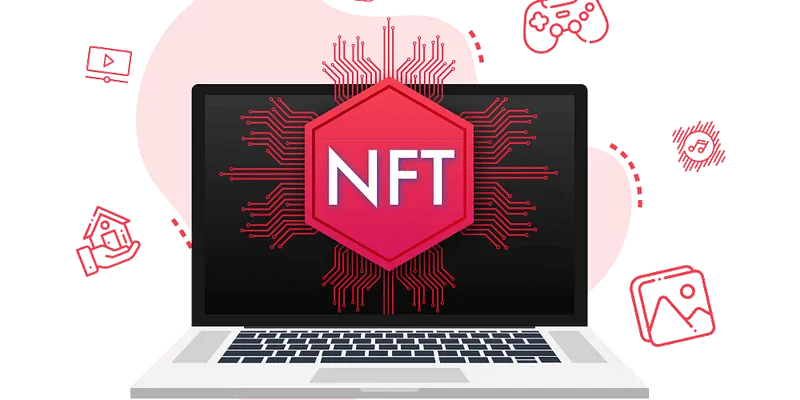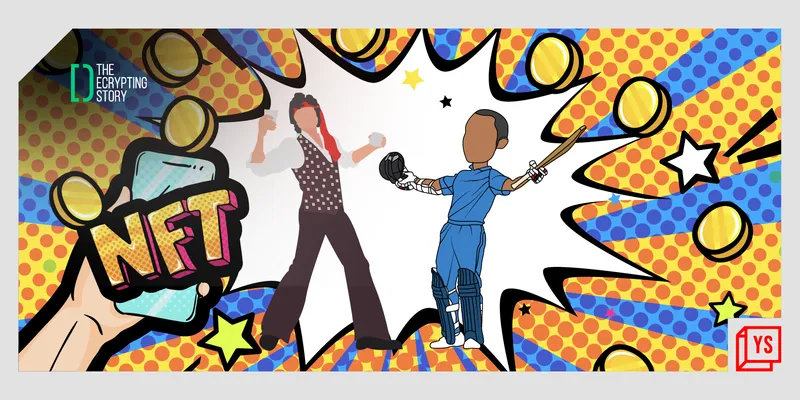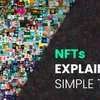How cricket and cinema are boosting India’s NFT market, spurring innovation among startups
Despite their unique approaches towards the domestic NFT market, many Indian startups are linked by their common focus on the cricket and cinema segments. Here’s how.
With Non-Fungible Tokens (NFTs) emerging as one of the hottest tech and startup trends in 2021, Indian startups have been exploring new ways to bring NFT technology to India’s media and entertainment industry.
As per IBEF data, the Indian media and entertainment industry is projected to have grown amid the COVID-19 pandemic from $18 billion in 2020 to $29 billion by 2023, and startups are constantly exploring new ways to bring NFT technology into this swelling market.
The likes of Rario, GuardianLink, Vibranium, Diginoor, Ikonz, colexion, BeyondLife, WazirX NFT Marketplace, etc., are all building unique approaches to make the most of this emerging market.
While some are building marketplaces for users to buy and trade NFTs, others are partnering with celebs to mint NFTs, and some are also working with large brands to protect their IPs amid the NFT mania.
Despite their unique approaches, most NFT startups in India are linked by their common focus — cricket and cinema.
Why? Two main reasons — their country-wide billions of fans, and because these fandoms had not been monetised in the digital world. Until now.

Digitising cricket and cinema fandom
Batting for Rario’s focus on cricket, the startup’s CEO and Co-founder Ankit Wadhwa said in a recent interview with The Decrypting Story:
“In other Western sports, I found 30-35 percent of sport revenue comes from merchandise sales, collectibles, and affiliate revenue. But this was not true for cricket. In the cricket world, revenue came in only from broadcasts, sponsorships, and ads. There was no real monetisation of fandom, besides fantasy sport platforms.”
The success of fantasy sport platforms like Dream 11 had shown Ankit that Indian users found the intersection of cricket and digital spaces interesting, and were willing to pay to participate.
Further, authentic physical merchandise, such as player jerseys were too expensive for the Indian market and prone to piracy.
Therefore, Ankit identified a white space in terms of taking cricket merchandise to the digital realm, and solving for authenticity using blockchain.
Current and former cricketers such as Virender Sehwag, Zaheer Khan, Rishabh Pant, Smriti Mandhana, Shafali Verma, AB De Villiers, Shakib Al Hassan, and Faf du Plessis have already signed up for NFTs of their player cards, video moments, etc., to be available for users on Rario’s marketplace.
The startup has also secured exclusive NFT rights for the Caribbean Premier League, T10, and Lanka Premier League.
Diginoor, another NFT marketplace, is bullish on India’s cinema segment for driving NFT adoption. It made its debut with NFTs from South Indian superstar Rajinikanth.
Shaamil Karim, Co-founder and CEO, Diginoor, says:
“People see NFTs as a fun way of investing, instead of always looking at graphs and numbers. Further, India has a lot of crypto wealth. Users who saw Rajinikanth’s face on our NFTs were completely sold on it.”
In fact, Diginoor saw a 60 percent increase in sales for its NFT drop featuring content from the Sivaji: The Boss (2007), such as deleted scenes, exclusive scenes of set props, etc, Shaamil claims.
The founder, who is just 18-years-old, is part of this generation that grew up experiencing physical merchandise transitioning into digital collectibles.
“Earlier, we used to buy playing cards of cricketers, and we used to trade and play games with friends using the cards. Now, NFTs are becoming the next wave of fandom, and with cinema, people are willing to spend,” he says..
Co-founder Yash Rathod adds, “Indian cinema has huge communities built around it, so the feeling of bragging rights and discussing the next hot thing has kicked in with NFTs. As a category, NFTs have been assimilating these aspects and inflicting FOMO (Fear Of Missing Out) in these communities. Where there’s hype, people are willing to invest.”

IP protection in the NFT market
Besides Diginoor’s Rajinikanth NFTs, other startups have roped in the likes of Amitabh Bachchan, Salman Khan, Sonu Nigam, and several other Indian superstars and celebs.
For them, NFTs are a way to unlock exclusive access to moments from the celeb’s career, and even access to video calls or meet-and-greets with the celebs themselves.
However, in bringing Indian icons into the NFT world (and consequently into possible iterations of the Metaverse), the owners of IPs have to throw caution to the wind, believes Ikonz Founder and CEO Abinav Varma Kalidindi.
Abinav’s NFT startup is a wealth-building platform that supports IP owners, artists, and other established icons to manage their digital assets and participate in virtual worlds in a safe and protected manner.
Commenting on the intersection of NFTs and virtual worlds, he said in a recent interview with The Decrypting Story:
“It’s a confusing world out there, with numerous virtual platforms, metaverses, blockchains, and cryptocurrencies. It is not easy for IP owners to decide how and where their brands should participate, all without risking their brand reputation. Ikonz helps them navigate the landscape of choosing the right technology as well as monetising and upscaling their IPs.”
Ikonz, which is working with Amar Chitra Katha and Tinkle, helps these iconic brands understand that the owner of an Amar Chitra Katha NFT is theoretically free to take their NFT and jump to any virtual world as blockchains powering NFT marketplaces become increasingly interoperable.
However, an Amar Chitra Katha NFT may not fit well in a horror-themed virtual world, and the reputation managers at the brand may want to prevent this from happening.
“Web 3.0 is decentralised; people can use NFTs in many ways. So, there is a need to protect IPs in terms of where they’re going. It is critical to design the correct methods and the rights and formats for how these IPs will participate in the metaverse, and this is where Ikonz steps in,” Abinav said.

On-ground demand
While Indian startups look to capitalise on the massive cricket and cinema fandom through NFTs, the real numbers (in terms of sales) are not quite there yet, according to Web3 and digital currency policy expert Tanvi Ratna.
In a recent column on CoinDesk, Tanvi noted that it is not for lack of trying that NFT collectibles have not taken off in India.
“Bollywood and cricket are two rich cultural categories, and it was only natural that celebrities in both spheres gravitated towards NFTs. Between June and December 2021, several movie stars and cricket players released NFTs. But these launches saw a relatively lukewarm response,” she argued.
As per her analysis, Amitabh Bachhan’s entire NFT collection (featuring several collectibles, including poem readings and a CryptoPunk) sold for just under $1 million.
In comparison with global CryptoPunk sales, this number is markedly low.
“Single CryptoPunks (the original must-have NFTs) have sold for many multiples of this, from $3-12 million. The sale also pales in comparison to NFTs by other celebrities. Mila Kunis’ Stoner Cats collection, which gave access for a series that has not even launched, pulled an easy $8 million,” she wrote.
Many Indian NFT startups have ambitious plans to pioneer the domestic market for digital collectibles, but these early movers continue to face a challenge in educating audiences on NFTs and creating real demand.
Despite this, they remain largely optimistic that 2022 will bring more stability and maturity to the NFT market, with many more use cases and applications becoming increasingly available for NFT owners.
Edited by Saheli Sen Gupta










